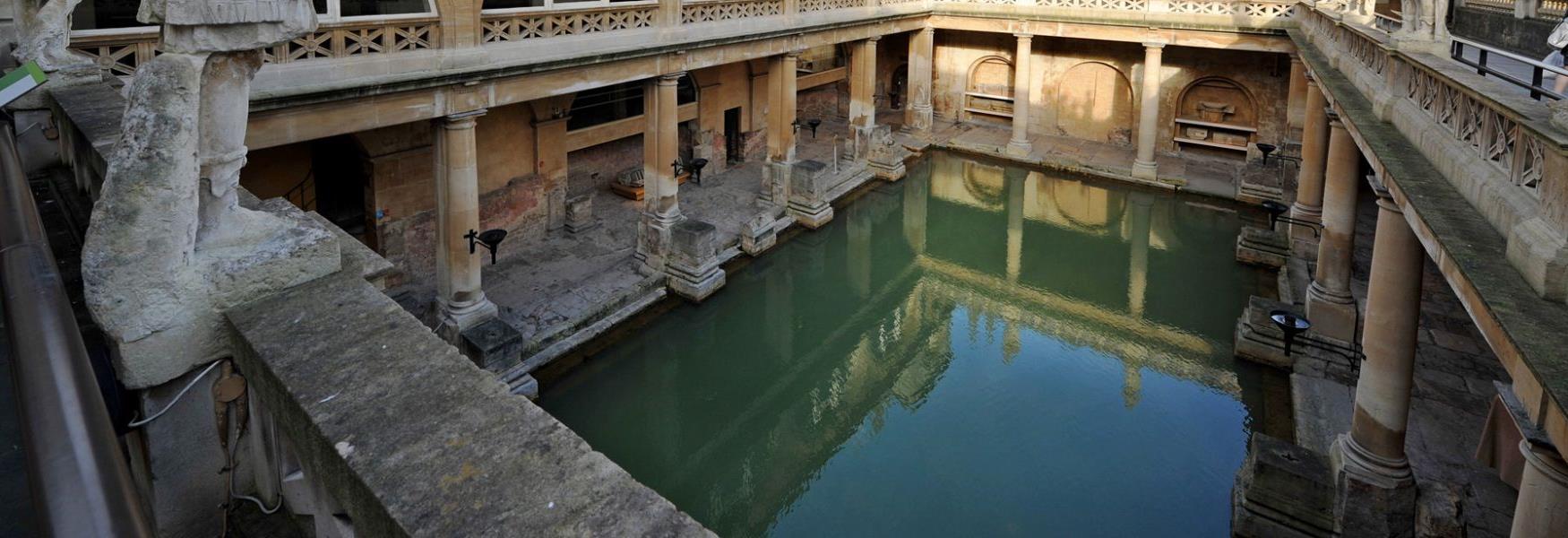To build your own Itinerary, click  to add an item to your Itinerary basket.
to add an item to your Itinerary basket.
Already saved an Itinerary?



You are here: UK History > Roman Britain > Notable people of Roman Britain
Though records are scarce from this time, there are several people that remain famous from this time.
Julius Caesar
Gaius Julius Caesar, 12th July 100BC – 15th March 44BC, was a Roman general and statesman and was a member of the First Triumvirate, leading the Roman armies in the Gallic Wars before becoming a dictator. He was assassinated in 44BC and played a role in the fall of the Roman Republic and the rise of the Roman Empire.
After assuming control of the government, he created several social and political reforms, including the creation of the Julian calendar, which is almost identical to the current calendar used in the Western world. He was an accomplished author and historian as much as he was a statesman and left many records detailing his life and the world around him.
He was one of the first Romans to visit Britain ahead of the Roman Invasion, though he spent little time in Britain on the whole.
On the Ides of March (which is widely believed to have been 15th March according to the Roman calendar), Caesar was due to appear at a session of the senate, where several senators had conspired to assassinate him. Many people knew of the plot and tried to convince Caesar not to go, but he waved them off.
When he arrived, the conspirators surrounded him, one pulled down his toga, while another stabbed him in the neck, within moments, the entire group, including Brutus Albinus, a former ally, began to strike him and continued to stab him as he lay dying on the steps of the portico. According to historians from the time, around 60 people were involved and he suffered 23 stab wounds. It is believed that his last words were “Et tu, Brute?” which translated to “And you Brutus?” though others claim he said “You too child?” and others claim he said nothing.
Tacitus
Publius Cornelius Tacitus, known to most as Tacitus, was a Roman historian and politician. He is regarded as one of the greatest historians of his time, his two most known works, the Annals and the Histories are still largely intact and cover the reigns of emperors Tiberius, Claudius and Nero. He also wrote extensively about the Roman invasion of Britain and provided early accounts of the persecution of Christians and references to the crucifixion of Jesus.
Details about his personal life are scarce, but historians do know that he was born into an equestrian family and loved hunting and being outdoors, despite his profession of being a historian.
Hadrian
Publius Aelius Hadrianus, famous for giving his name to Hadian’s Wall, he was born in Italica, which is in modern day Spain. He was part of a senatorial family and found himself being nominated as Emperor after marrying into the royal family. During his time he was known for investing in the development of borders and creating defences, hence the creation of Hadrian’s Wall which marked the northern border of Britannia during the Roman occupation.
He spent more than half his reign outside of Italy and had a desire to see as much of the Empire as possible. He reigned for 21 years and became ill towards the end of his life.
Caligula
Gaius Caesar Augustus Germanica, more commonly known as Caligula, was the third Roman Emperor, ruling from 37 AD until his assassination in 41AD. Although he was named after Julius Caesar, (his first name at birth was also Gaius) he was known as Caligula, which translated as Little Boot, from an early age. He wasn’t necessarily in the line of accession but eventually became the only surviving male in the family and stayed out of public life until the age of 37 when he became Emperor.
It was Caligula who expanded the Roman Empire to the west, he brought up two attempts to extend rule to Britannia before the invasion went ahead.
Historians describe him as being indulgent and short tempered, it was said that he killed on a whim and spent time wooing inappropriate ladies, including his own sisters. This, along with affairs with various men (including his brother in law) and being described as being unstable led to his assassination.
The plot was planned by three men but many in the senate were said to know about the plot. His assassination mirrored that of Caesar’s, he was also stabbed multiple times by his conspirators. Also like Caesar, Caligula was thought to have had epilepsy.
Nero
Nero Claudius Caesar Augustus Germanicus was born Lucius Domituis Ahenobarbus and was the nephew of Caligula. He was the fifth Roman Emperor and the final emperor of the Julio-Claudian dynasty, reigning from 54AD until 68AD.
Nero was the emperor in charge during Boudica’s revolt in Britain and was one of the emperors that featured in Tacitus’ writings. According to Tacitus, Nero killed his mother over an affair, however he later tried to tell people that she killed herself.
It is claimed that he eventually killed himself after being turn on by the Senate, but it is unclear what really happened.
Boudica
Boudica or Boudicca was the queen of the Iceni tribe, one of the Celtic tribes that lived in Britain prior to the arrival of the Romans. She led a failed uprising against the Romans in the Boudiccan Revolt and is considered to be a national heroine.
Boudica was married to Prasutagus, the king of the Iceni. The pair had two daughters and were initially allies of the Romans, with Prasutagus believing that they could remain independent if he split his lands between his family and the Emperor Nero in the event of his death. However, when he died his will was ignored and the kingdom annexed and property stolen by the local Romans. Boudica and her daughters were tortured and this led, in part, to the uprising. Boudica led the Iceni and other nearby tribes into a revolt leading to the destruction of Colchester and London, among others. Despite having larger forces, the Romans chose a more advantageous spot during their final battle and the Britons were defeated.
It is believed that Boudica died, either by suicide or illness after the defeat, however her grave has never been discovered. Tacitus and other historians give an account of speeches given by Boudica before and after battle, but there is no real evidence to suggest what happened to her or her daughters following the Roman victory.
© Visit Heritage 2025. All Rights Reserved

.png)


